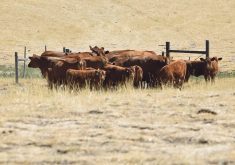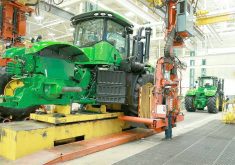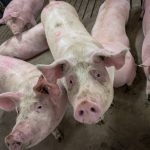Ian Wishart is president of Keystone Agricultural Producers (KAP), Manitoba’s general farm organization.
KAP recently attended a research and development conference for agriculture and food traceability. Trace R&D was hosted by the University of Manitoba and focused on examining traceability technology and looking into a national traceability research strategy. A considerable portion of the event highlighted perspectives on traceability from different points in the food supply chain, including the farm.
Traceability has become one of the most discussed developments in our modern agri-food system. Traceability systems can provide many benefits for producers and other stakeholders, including increasing productivity and profitability related to farm operations, processors, and distributors.
Read Also

Deep cuts to ag research jeopardize Canada’s farming future
The huge cuts to ag research at Agriculture Canada are being widely panned by farm organizations, but there seems to be little hope of the government reversing its decision.
Though traceability does not guarantee food safety, it does provide a tool to help prevent food safety hazards from reaching more people when a problem occurs. Traceability is important to producers because it can offer market access, with buyers in many countries demanding it.
Some consumers want to know where their food comes from for different reasons such as fears over food recalls and disease outbreaks. Another possibility is that they may be looking for value-added, or want to buy local, organic, or non-GMO. They may be willing to pay for a material or non-material value endowed in food, such as food associated with a particular growing or production region. The question on how the costs and the values are shared with producers is yet to be answered, but it is clear that we need co-operation from all of the members in the value chain – so far this has been difficult to achieve.
We know “identity preservation” is important. But the fact is Canada is lacking in the ability to trace all foods from farm to fork. Around the globe, developed and developing countries are further ahead of us in establishing traceability programs.
What producers and farm organizations must do is work with the government to develop a system that is rapid, complete, internationally recognized, and nationally integrated. There is little sense in individual provinces developing independent systems if they are not compatible with systems in other provinces. A nationally integrated system is necessary in order for us to open up new markets and maintain existing ones. We also must help direct research and development in the field, and be willing to fully participate in traceability.













